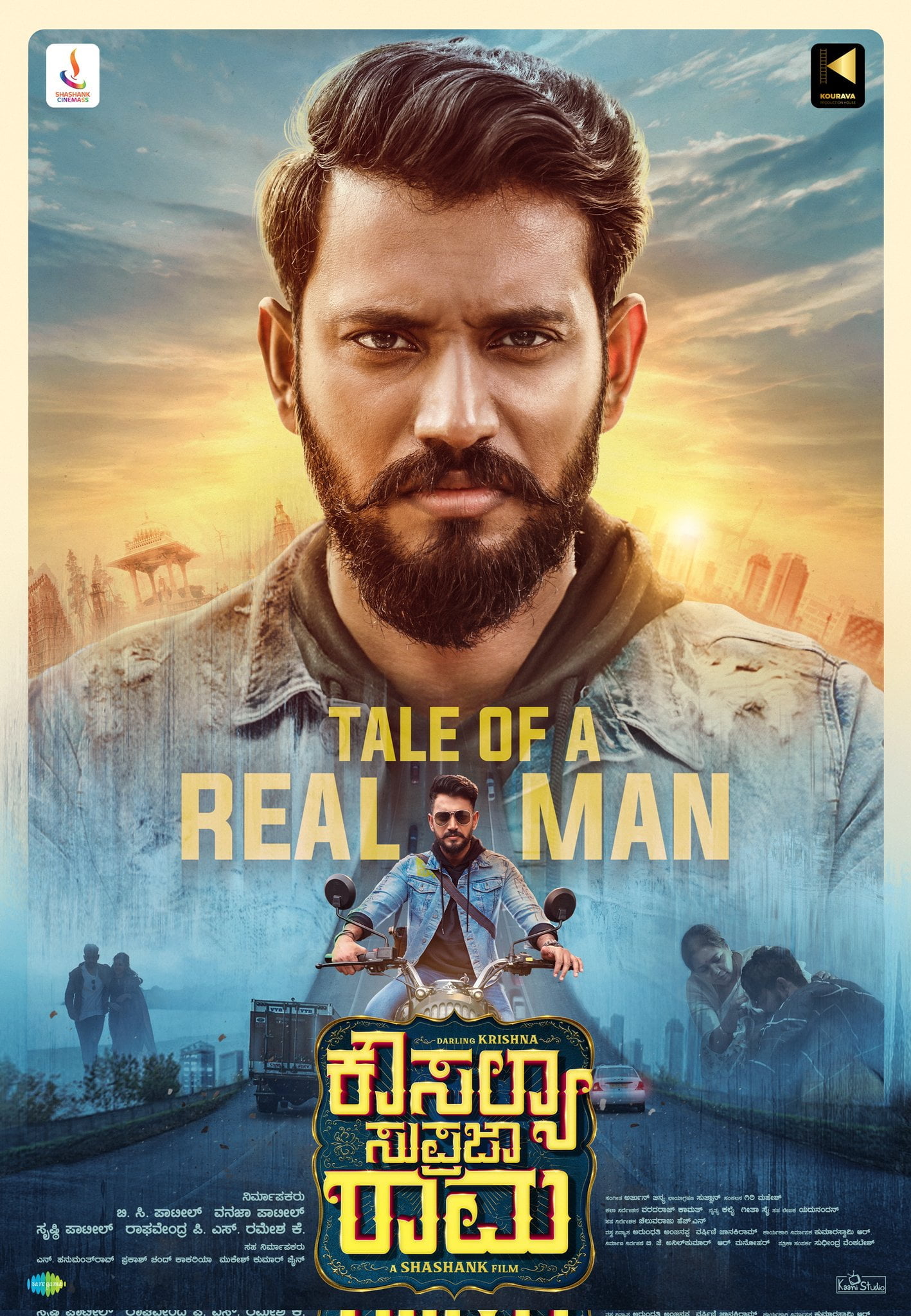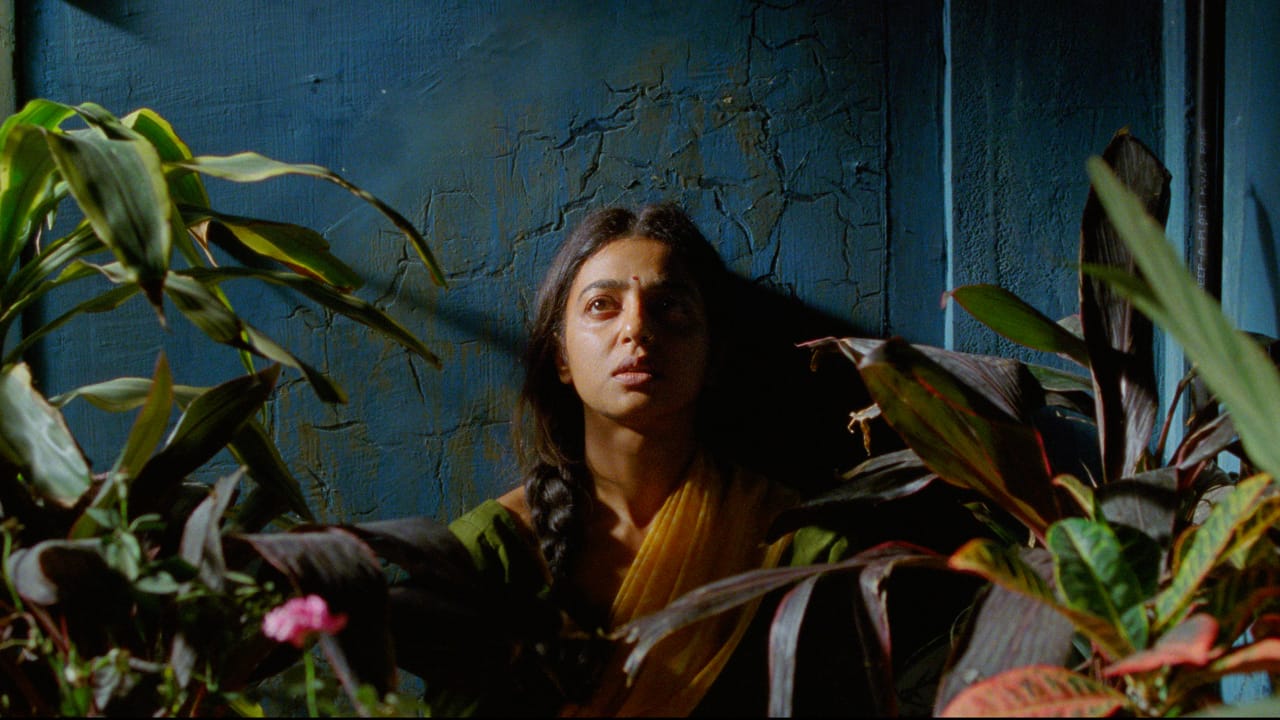CW: Spoiler Alert
‘It was great to see Rama change to become Kousalya’s son from Siddegowda’s son.‘
This was the line in the 2023 Kannada film Kousalya Supraja Rama (KSR) that gave me goosebumps. It was the time I realised that this film is definitely way ahead of the rest of the Sandalwood industry.

Kousalya Supraja Rama (KSR) is a 2023 Kannada language comedy drama written and produced by Shashank. It stars actors Darling Krishna, Brinda Acharya and Milana Nagaraj in lead roles. The films provides a fresh portrayal of toxic masculinity and male chauvinism in a nuanced manner.
Sandalwood’s status quo and Kousalya Supraja Rama (KSR)
We are in the time and age where most Sandalwood films still portray the male protagonist to be a macho man who has a heart of stone. The hero is a man who never cries, and is in fact, shamed for showcasing any emotions. Popular films like KGF adulate the same macho man perspective as a blockbuster.
I believe a film, like Kousalya Supraja Rama (KSR) that brings in a fresh narrative deserves the same limelight.
Kousalya Supraja Rama is nothing less than a wake-up call for the Kannada Industry. It normalises men expressing emotions, being equal in a relationship, and portrays women as unafraid while standing up for themselves.
Kousalya Supraja Rama is nothing less than a wake-up call for the Kannada Industry. It normalises men expressing emotions, being equal in a relationship, and portrays women as unafraid while standing up for themselves. These are elements that are a rare sight in most of the films in the Sandalwood industry.
Storyline of Kousalya Supraja Rama: dissecting the film
The film starts with how Rama (the male protagonist) is always told by his father (Siddegowda), ‘You are a man, grow up‘, ‘You are a man, you must never be subservient to a woman‘, ‘You are a man, you must never cry‘ etc. which are common parlances in the daily lives of most Indian men. He follows the footsteps of his father. He even starts mistreating his mother (Kousalya), just like his father. At this point in the film, it sheds light on silenced domestic violence. It shows a mother advising her child not to speak about the happenings at home, because that would mean to air out dirty laundry in the public, which is far more of a disgrace than the violence itself. It is a common scenario in most households, and also one of the primary reasons why domestic violence goes unreported. That family reputation should never bite the dust is an implicit tenet in traditional family structures.

But everything in the film changes, when Shivani, Rama’s girlfriend comes into his life. But Rama, due to his social conditioning and lack of a better understanding, starts treating Shivani the same way he treated all the other women in his life. Shivani bears it to a certain extent. But when he crosses the line, she leaves him for good.
Unlike every other film, where the woman always comes back to the man, despite whatever he did to her, Shivani never goes back to Rama. Rama never attempts to apologise, amend his habits or change for his lover. Instead he masks his feelings with excessive alcohol. This is a much needed and right representation of the “breakup phase” in a man’s life. At least in Sandalwood, this phase is glorified to such an extent that there are exclusive songs dedicated in the films. (Eg: nin makke benki haaka from Badava Rascal, Khaali quarter batli from Victory 2), mostly which are misogynistic sob stories blaming the girl for ditching the man.
Unlike every other film, where the woman always comes back to the man, despite whatever he did to her, Shivani never goes back to Rama.
But Kousalya Supraja Rama presents it in its raw form – where a man is truly hurt and regretful, yet his male ego stops him every time from apologising to his girlfriend.
Another twist in the story arises, when Rama’s mother passes away. This leads Rama to an epiphany where he finally decided to change himself. He reflects on his past mistakes and goes to become a reformed man for his wife – Muthu Lakshmi. He also goes way beyond his way to reform his drunkard wife to rejoin college and to fight against excessive alcohol abuse.

The film ends with Siddegowda preparing payasa for Rama’s birthday, an indication that he has embraced change, by shouldering household duties which he initially shied away from.
Embracing change – how cinema is an intergenerational conversation starter
There are many conversations that cannot start out of the blue like flagging domestic violence, raising voices against toxic masculinity, and speaking against the belittling of women. This is especially true when the head of the family, a person of power and authority in a household abuses their position to ‘show others their place in the family.’
This film can give many women a voice to stand up for themselves. It helps many men to realise and break free from toxic social conditioning and standards that they were involuntarily subjected to. It gives children a chance to not to be a sitting duck just witnessing violence.
Why Kousalya Supraja Rama can be a North-Star for the upcoming films in the industry
The film ends with Kausalya chanting Kousalya Supraja Rama in Rama’s dream. But for the industry this is only the start. Choosing film(s) as a pathway to strive for change can have huge impact on the society. Even if not for the sake of solely bringing a purposive film, incorporating these elements into the upcoming film can go a long way in normalising what everyone faces daily. It would have a far reaching impact on an individual, a family and the society as a whole.





